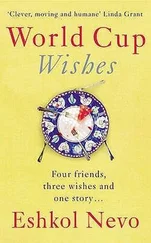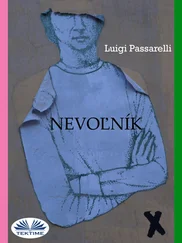Eshkol Nevo - Homesick
Здесь есть возможность читать онлайн «Eshkol Nevo - Homesick» весь текст электронной книги совершенно бесплатно (целиком полную версию без сокращений). В некоторых случаях можно слушать аудио, скачать через торрент в формате fb2 и присутствует краткое содержание. Год выпуска: 0101, ISBN: 0101, Издательство: Random House, Жанр: Современная проза, на английском языке. Описание произведения, (предисловие) а так же отзывы посетителей доступны на портале библиотеки ЛибКат.
- Название:Homesick
- Автор:
- Издательство:Random House
- Жанр:
- Год:0101
- ISBN:9781448180370
- Рейтинг книги:5 / 5. Голосов: 1
-
Избранное:Добавить в избранное
- Отзывы:
-
Ваша оценка:
- 100
- 1
- 2
- 3
- 4
- 5
Homesick: краткое содержание, описание и аннотация
Предлагаем к чтению аннотацию, описание, краткое содержание или предисловие (зависит от того, что написал сам автор книги «Homesick»). Если вы не нашли необходимую информацию о книге — напишите в комментариях, мы постараемся отыскать её.
Homesick
Homesick — читать онлайн бесплатно полную книгу (весь текст) целиком
Ниже представлен текст книги, разбитый по страницам. Система сохранения места последней прочитанной страницы, позволяет с удобством читать онлайн бесплатно книгу «Homesick», без необходимости каждый раз заново искать на чём Вы остановились. Поставьте закладку, и сможете в любой момент перейти на страницу, на которой закончили чтение.
Интервал:
Закладка:
Then the game started and everyone yelled at everyone else: sit down! sit down! But no one wanted to be the sucker who’d sit down first, so they all stayed standing. During the first half, there were mainly fouls. The referee kept whistling and taking out yellow cards. No one kicked in the direction of the goals except for one corner that Pishont kicked which almost hit the net by mistake. The fans, who had sung a lot of songs before the game, gradually got quiet, sat down and started cracking sunflower seeds. They didn’t get up again until half-time, when Moshe Sinai walked past under the stands on his way to the locker room and they threw plastic bottles at him and swore at him. There’ll be goals in the second half, Amir promised. Ours, I said, and remembered a Yehuda Barkan candid camera programme I had seen that week.
I didn’t tell Amir about it so he wouldn’t get scared. On the programme, they put a Maccabee Haifa fan into the Beitar stands wearing a yellow shirt over a green Maccabee Haifa shirt. After a few minutes, he took off the yellow shirt and started cheering for Maccabee Haifa in the middle of the Beitar stands, wearing green. Wow, did he get smacked around. They took him to the hospital and he had to have about ten stitches.
Just don’t let Hapoel score, I prayed silently. I wouldn’t want Amir to have to get stitches.
But as soon as the second half started, that’s exactly what happened.
Shmulik Levy lost a ball on the side closest to us and Alon Ofir ran down the line almost to the corner and then kicked. Kornfein ran out to stop the ball, but Nissim Avitan jumped higher than him and butted the ball into the net.
Suddenly, the whole stadium was quiet. Complete silence. Like right after Adina, our form teacher, shouts that if we don’t quieten down, she’ll give us a test.
I looked at Amir. I hoped he wouldn’t say anything. I prayed he wouldn’t do anything. But he did. He opened his mouth and yelled.
*
Why?! Why?! Why?!
That’s what I yelled. I was bursting with happiness about Hapoel’s fantastic goal and I couldn’t keep it inside, so instead of yelling ‘Yes!’ I found myself yelling ‘Why?! Why?! Why?!’ Three earsplitting shouts that thundered through the stunned stands. Yotam looked at me worriedly. A few heads turned towards me in puzzlement. How, I kept yelling, how did you let them score a goal like that?! Because we have lousy defence, someone sitting two rows below us answered. Because the coach is shit, someone sitting above us said. A bunch of fans got up and started singing to the coach: resign, resign, resign. The Beitar players looked embarrassed. The Hapoel players went right into a bunker defence. A little one-nil. That’s all we need. That’s our speciality. For years. Towards the end of the game, Beitar did have a few chances. Abucsis kicked two balls that whistled over the goal, and Yotam grabbed his head in frustration. I patted him on the shoulder with a winner’s generosity. Wait, he said, it’s not over yet. But a second after he said that, the referee whistled the end of the game and the Hapoel players hugged Moshe Sinai and ran quickly to the locker rooms so the flying plastic bottles wouldn’t land on their heads. Fans hung on the fences and swore at them, and when they’d all left the field and there was no one left to insult, the stadium started to empty out. Yotam and I waited in our seats till the last fan had gone. We sat there staring at the sunflower seed shells, the ice lolly wrappers and the special editions of the fans’ newspaper published in honour of the game that were now being trampled on by the crowd.
We didn’t talk on the way to the car. As a Hapoel fan, I know how you feel after a loss: you have no strength for anything, especially not a conversation with a fan of the winning team. But when we started driving, I said to Yotam, don’t worry, it’s not over yet. There are still seven more rounds to go. He said, yes, but we’re really awful. And I agreed, yes, you really are pretty bad. Then he imitated me, why?! Why?! why?! Why are they so awful?! We both laughed hysterically while we drove. My nose started running and my eyes were so full of tears that I could hardly see the road. And every time I thought I was calming down, he started again: Why?! Why?! Why?! And I started bellowing all over again. God, that was funny, I said when we stopped at a light. Yes, he said, I can’t wait to tell … and he stopped.
Gidi? I asked, and all the laughter drained out of me like water in a bath after you pull out the plug.
Yes, he said. I tell him things sometimes. I go to the empty lot and talk to him, but it’s OK, you don’t have to tell me he’s dead and doesn’t hear me. I know.
Do you miss him? I asked, realising that this was the first direct question I’d asked him about his brother.
Sometimes, he answered, pressing a finger against the window as if he wanted to leave a print on the glass.
I almost asked, when do you miss him especially? but I wasn’t sure it was a good idea to draw him into that kind of conversation, as if he were a repressed adult who needed help opening up. If he wanted to talk, he would.
He kept his finger pressed against the glass, and we drove the rest of the way home like that, in silence. I parked the car, then turned and looked at him. He looked exhausted. His hair was all messed up, the front of his yellow t-shirt was stained, probably from the ice lolly, and instead of opening the door, he sank deeper and deeper into the seat.
Everything OK? I asked.
He nodded. Too slowly.
Is it because we talked about Gidi?
No.
Because Beitar lost?
No.
So what happened?!
He played with the seatbelt, tightening it and loosening it. Tightening and loosening. I took mine off and reached for the door — not so I could get out, just to open the window and let a little air in — but then he said, literally shooting out the words: I don’t feel like going home.
He looked apprehensively at my hand to make sure I wasn’t running away. I put my hand back on the wheel and asked: why?
He didn’t say anything. A few months ago, when Noa and I were still having idle conversations, she told me that when people hesitate about what to say, if you look carefully you can see the words rising and falling in their throats. Sometimes a word can get to the tip of their tongue, and then at the last minute, it slides all the way back. I looked at Yotam’s throat and thought: when I was his age, I didn’t want to go home either, but if someone had asked me why, I wouldn’t have known what to say.
It hasn’t been very happy in your house for the last year, I said, and a picture rose in my mind: dozens of lighted memorial candles in the living room.
Yotam nodded, or just moved his head slightly.
And your parents aren’t the way they used to be, I went on. Before Gidi was killed, I mean.
Now it was a nod. No doubt about it.
And they don’t have time for you, I said. They barely notice what’s happening with you. You could disappear for half a day and they wouldn’t even care.
Yes, he said, and like a relay race runner who’d just been handed the baton by his team-mate, he took off on his own run:
My mother doesn’t do anything all day, she just sits and looks at his pictures, and if you walk past her in the living room, she asks you to come and look with her, but how many times can you look at the same album, you get sick of it in the end. And my father stays at work till late, on purpose, and when he comes home, he doesn’t whistle like he used to, he just closes the door behind him, quietly, like he’s ashamed to come in. Then he eats a bit, usually alone, and watches the news on channel two and on channel one, and gives his opinion out loud, even though no one’s listening. Then he turns off the TV and goes straight to bed. He hardly says a word to me and he doesn’t come to sit on my bed. Once, he used to come and talk to me every night before I went to sleep, ask me how things were in school. And Mum too. She used to come in and cover me even if I was covered already, and now neither one of them comes. They don’t care about me.
Читать дальшеИнтервал:
Закладка:
Похожие книги на «Homesick»
Представляем Вашему вниманию похожие книги на «Homesick» списком для выбора. Мы отобрали схожую по названию и смыслу литературу в надежде предоставить читателям больше вариантов отыскать новые, интересные, ещё непрочитанные произведения.
Обсуждение, отзывы о книге «Homesick» и просто собственные мнения читателей. Оставьте ваши комментарии, напишите, что Вы думаете о произведении, его смысле или главных героях. Укажите что конкретно понравилось, а что нет, и почему Вы так считаете.












